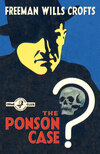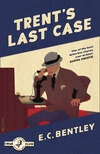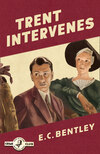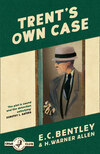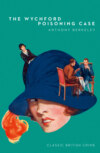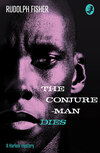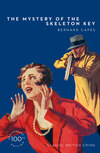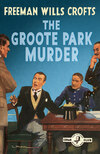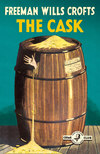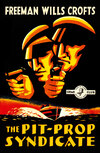Kitabı oku: «The Ponson Case», sayfa 2
‘That is so, sir, but we thought we had better consult you before raising an alarm. As you say, sir, Sir William has often gone over to these places in the evening, but never without saying he would be late, and he never stopped all night.’
‘Oh well, I expect he’s done it this time. But you had better go round and see. Stay, I’ll go with you myself. Wait a few minutes while I get some breakfast.’
Twenty minutes later they were on the road. They called at the two houses mentioned, but at neither had anything been heard of Sir William. It was nearly nine when they reached Luce Manor. Parkes hurried to meet them.
‘Any news, Parkes?’ asked Austin as he entered the house. He had recovered his composure, and seemed more at ease.
‘No, sir,’ replied the butler, ‘but we’ve made a discovery—just before you came.’
Again the flash of something like fear showed in the other’s eyes. He did not speak, and Parkes went on:
‘About ten minutes ago, sir, Smith, the under-gardener, who is boatman also, came up here asking for Sir William. I saw him, and he said he had just discovered that one of the boats was missing—stolen, he said. I kept him, sir, in case if you came back with Innes you might like to speak to him.’
Austin Ponson’s face paled as if this news was a shock.
‘Good Heavens! Parkes,’ he stammered, ‘you don’t mean to suggest—’
‘I thought, sir,’ resumed the butler smoothly, ‘that maybe Sir William had taken a sudden notion to go over and see Dr Graham. Sometimes, as you know, sir, gentlemen like to consult a medical man privately. He might have rowed himself across the river for a short cut.’
Austin seemed relieved.
‘Yes, yes, quite possible,’ he said. ‘But we ought to make sure. Run round, Innes, will you, in the car and find out.’
‘Will you see Smith, sir?’ asked the butler when Innes had gone.
Austin seemed to awake out of a reverie.
‘Yes—oh yes, I suppose so,’ he answered. ‘Yes certainly. Bring him in.’
A small, stout man, with a short brown beard stepped up. He was, he explained, boatman as well as under-gardener, and it was his custom each morning to visit the boathouse, give the boats a run over with a cloth, brush the cushions, and leave everything ready in case a boat might be required during the day. On this morning he had reached the boathouse as usual, and was surprised to find the door unlocked. Entering, he had at once noticed that the water gate connecting the basin in the house with the river was fully open, and then he saw that the Alice, the smallest of the skiffs, was missing. A glance at the rack had shown that the oars and rowlocks had also gone. He had looked round generally, but could not find any other trace of disturbance. He had immediately come up to the house to inform Sir William.
Austin Ponson had listened carefully to the man’s statement, and he now asked a question:
‘You say you were surprised to find the boathouse door unlocked. I have been at the boathouse scores of times, and I never knew it to be locked. Why should it have been locked then?’
‘I lock it, sir,’ the man replied, ‘every night at dusk. Every morning I open it, and it stays open through the day.’
‘And did you lock it last night?’
‘Yes, sir.’
‘About what time?’
‘About 8.00 or 8.30, I should think.’
‘Who else has a key?’
‘No one but Sir William, sir.’
Austin turned to the butler.
‘Do you know where he keeps this key?’
‘In the drawer of his writing table, sir.’
‘See if you can find it now.’
In a few moments Parkes returned. Several keys, each attached to its neatly lettered block of wood, were in the drawer, but that of the boathouse door was missing.
‘That will do, thank you, Smith,’ Austin went on, then, when the man had withdrawn, he turned to the butler. He still seemed nervous and upset.
‘It seems pretty clear Sir William has gone out on the river; now what on earth would he do that for? I wish that man would come back from the doctor’s.’
‘He won’t be long, sir. Say ten minutes there and ten back, and five to make inquiries. He should be here in five or six minutes.’
In about that time Innes returned. Sir William had not called at Dr Graham’s.
Austin and Parkes exchanged troubled glances. The same terrible idea which had been in their minds since the discovery of the missing boat was forcing itself to the front.
The River Cranshaw was a broad and sluggish stream at Halford, and for the two miles or so of its course to the point where it passed Luce Manor. But just below Sir William’s grounds there was a curious outcrop of rock, and the waters had cut for themselves a narrow channel down which, when the river was full, they raced at ever increasing speed till they reached the Cranshaw Falls. Here they leaped over a ledge of rock, not very deep—not, in fact, more than four or five feet—but the river bed at the foot, and for some distance downstream, was so full of huge boulders that the waters danced and swirled, and were churned into a mass of foam as great as might have been expected from a fall of five or six times the height. A dangerous place at which there had been more than one accident. On the last occasion, some twenty years earlier, a party of a man and two girls had allowed themselves to drift into the narrow channel, and in spite of their frantic efforts, their boat had been carried over and all were drowned. The bodies, two of them frightfully disfigured, were found in the smooth water below the rapids. As at the present time, there had just been a severe thunderstorm followed by torrential rain over the whole country, the river was in flood, and the fear that a similar fate might have overtaken Sir William was only too reasonable.
For a few moments none of the men spoke. Then Austin, pulling himself together with an effort, said in a low tone, ‘We must go down the river, I’m afraid. Better bring Smith.’
The four men walked to the boathouse, and then turning downstream, continued their course along the bank. Soon they came to the rocky ground where, from 300 feet or more in width, the river narrowed in to about sixty. There was a strong fresh, and the water seethed and eddied as its speed increased, while the roar of the fall grew louder.
Just above the fall a two-arched bridge carried a road across the river, a huge rock in midstream parting the current, and bearing the masonry pier. Here the men divided, the butler and Smith crossing to the opposite bank, and Austin and the valet remaining on the Luce Manor side. Then they pushed on till they reached the fall itself.
The river was even higher than they had realised, almost as high as during the winter rains. It went over the ledge in a smoothly-burnished curve, then plunging into the mass of boulders, was broken into a thousand whirling eddies, all seething beneath leaping masses of foam. As the men looked at it their hearts sank. A skilful Canadian lumberman on a raft or in a strong, seaworthy boat might have negotiated the place in safety, but for an elderly business man like Sir William, in a frail skiff, only one end seemed possible.
Slowly they walked on, examining with anxious eyes the swirling flood. And then at last they saw what they were in search of. Near the end of the rapids, where the river had quieted down to a more even flow, the bow of a boat was sticking up out of the water against a rock. Hastening forward they caught their breath as they saw a little farther down-stream a dark shapeless object, lying almost submerged in a backwater. It was the body of a man.
It was obvious that nothing in the nature of help could be given, as the man must have been dead long since. The body was on the Luce Manor side of the river, and Parkes and Smith hurrying round, the four stepped into the pool, and with reverent care lifted it out and laid it on the grass. One glance at the face was enough. It was that of Sir William Ponson.
CHAPTER II
A SINISTER SUGGESTION
FOR some moments the men stood, reverent, and bare-headed, looking down at the motionless form. The face was disfigured, the left cheek from the ear to the mouth being cut and bruised, evidently from contact with a boulder. The left arm also was broken, and lay twisted at an unnatural angle with the body.
At last Austin made a move. Taking out his handkerchief, he stooped and reverently covered the dead face.
‘We must send for the police, I’m afraid.’ He spoke in a low tone, and seemed deeply affected. ‘You go, Innes, will you? Take the large car and run them back to the bridge. You had better bring Dr Ames too, I suppose, and a stretcher. Also send this wire to Mr Cosgrove. We’ll wait here till you come.’
He scribbled a telegram on a leaf of his pocket book:
‘To Cosgrove Ponson, 174B Knightsbridge, London.—Terrible accident. My father drowned in river. Tell my mother at Lancaster Gate, then come.—AUSTIN.’
Cosgrove Ponson was the only son of Sir William’s younger brother, and was consequently cousin to Austin and Enid. These three with Lady Ponson were now the only living members of the family. Cosgrove was a man of about five-and-thirty who had inherited some money from his father, and lived the careless life of a man about town. Though he had never got on well with Austin, he had been a favourite of Sir William’s, and had spent a good deal of time, on and off, at Luce Manor.
When the valet had gone Austin sat down on a rock and, leaning his head in his hands, seemed to give himself up to profound meditation. The others, uncertain what to do, withdrew to a short distance, not liking either to intrude, or, after what Austin had said, to leave altogether. So they waited until after about an hour Innes reappeared, and with him Dr Ames, a sergeant of police, and two constables carrying a stretcher.
‘Innes has told us, Mr Ponson. A truly terrible affair!’ said the doctor, with real sympathy in his voice. He shook hands with Austin, while the sergeant saluted respectfully.
‘I’m afraid, doctor, you can do nothing. He was dead when we found him.’
‘Ah, I imagined so from what your man said.’ Dr Ames knelt down and lifted the handkerchief from the battered features. ‘Yes, you are right. He has been dead for some hours.’ He replaced the handkerchief, and rose to his feet. ‘I suppose, Mr Ponson, you will have him taken to Luce Manor? There is no reason why that should not be done at once.’
‘I was only waiting for the stretcher.’
The doctor nodded and took charge.
‘Your stretcher, sergeant,’ he said.
The remains were lifted on, and slowly the melancholy little procession started. Before they left, the sergeant asked who had made the tragic discovery, and was shown exactly where the body had been found. One constable was left with instructions to see that no one touched the boat, and the sergeant and the other policeman walked with the party, taking their turns in carrying the sad burden. After Austin had instructed the butler to hurry on and prepare for them at the house, no one spoke.
When the body had been laid on the bed in Sir William’s room, and the little excitement caused by the arrival had subsided, the sergeant approached Austin Ponson.
‘Beg pardon, Mr Ponson,’ he said. ‘I’m very sorry, but I’ll have to make a report about this, and I’m bound to ask a few questions. I hope, sir, you won’t mind?’
‘Of course not, sergeant. I understand you must do your duty.’
‘Thank you, sir. May I ask then if you can explain how this accident occurred?’
‘No more than you can, sergeant. I only know that Innes, Sir William’s valet, came to my house when I was dressing this morning, to know if Sir William was with me. He said he had gone out after dinner last night without leaving any message, and they didn’t know where he was. I came back with Innes, and they had just then learnt that the boat was missing. We thought perhaps my father had rowed across the river to see Dr Graham, and I sent round to inquire, but when we learnt he hadn’t been there we began to fear the worst. We therefore went down the river to see if we could find anything.’
‘And when, sir, did you see him last?’
‘On Sunday evening—three days ago. I dined here, and left about ten or later.’
‘And was he in his usual health and spirits then?’
‘Yes, I noticed nothing out of the common.’
‘And he said nothing then, or indeed at any time, that would explain the matter?’
‘Not a thing. He seemed perfectly normal in every way.’
‘Very strange affair, sir, where he could have been going to. Was he skilful with a boat?’
‘No, I should say not. He could row a little, but not well. He did not specially care for it. I rarely knew him to go out for pleasure.’
‘Thank you, sir. With your permission I will see now what Mr Parkes and the other men can tell me.’
He heard the butler’s story, then Innes’s and lastly Smith’s. He was a young and intelligent officer, and was anxious to send in a complete explanation of the tragedy in his report, but he was almost equally desirous not to inconvenience or offend Austin Ponson, whom he supposed would succeed Sir William and become a magistrate and a leading man in the district. Though he had admired Sir William and was genuinely shocked and sorry about the accident, yet he was human, and he could not but recognise the affair gave him a chance of coming under the special notice of his superiors.
Up to a certain point he was clear in his own mind what had occurred. Sir William had left his house sometime between 8.45 and 11.30 the previous evening, and had gone down to the boathouse with his key, entered, opened the water gate and taken out the Alice. In the darkness, and probably underestimating the amount of fresh in the river, he had allowed himself to be carried into the narrow channel. Once there he had practically no chance. The place was notoriously dangerous.
So much was plain enough, but the sergeant was bothered by the question, what had Sir William gone out for? No one had as yet thrown any light on this.
Calling Dr Ames, who, not having had any breakfast, was just finishing a somewhat substantial snack in the dining-room, the sergeant explained that he wished to go through Sir William’s pockets, if the doctor would come and assist him. They accordingly made their way upstairs and began their search.
The pockets contained just those articles which a man in Sir William’s position would naturally be expected to carry, with one exception. Besides the bunch of keys, handkerchief, watch, cigar-case, money and such like, there was a very singular object—nothing more nor less than a small-sized six-chambered Colt’s revolver, unloaded. There were no shells, either full or empty, and the barrel was clean, showing it had not been fired.
‘By Jove! Sergeant,’ Dr Ames exclaimed in a low tone. ‘That’s surprising.’
‘Surprising, sir? I should just think so! You never know, sir, about anybody. Sir William was the last man, I should have said, to go about armed.’
‘But he wasn’t armed, sergeant,’ rejoined the doctor. ‘A man with a revolver is not armed unless he has something to fire out of it. That’s no more an arm than any other bit of old iron.’
The sergeant hesitated.
‘That’s so, sir, in a way, of course. Still—you can hardly think of anyone carrying an empty revolver. I expect he must have had the habit of carrying shells, but by some oversight forgot them yesterday.’
‘Possibly. There doesn’t seem to be much else of interest anyway.’
‘No, sir, that’s a fact.’ The sergeant, having emptied all the pockets, began laboriously to make a list of the articles he had found. Dr Ames had taken up a small diary or engagement book, and was rather aimlessly turning over the sodden leaves. Suddenly he gave an exclamation.
‘Look here, sergeant,’ he whispered. ‘Here’s what you have been wanting.’
There was a division in the book for each day of the year, with notes of engagements or other matters in most. At the bottom of the space for the previous day—the portion which would probably refer to the evening—was written the words: ‘Graham, 9.00 p.m.’
‘There it is,’ went on Dr Ames. ‘That’s where he was going last night. He evidently intended to consult Dr Graham privately. As it was too far to walk round by the road, and he didn’t want to get a car out, he thought he would take a short cut by rowing across the river.’
The sergeant made a gesture of satisfaction.
‘You have it, sir. That’s just what he’s done. I don’t mind saying that was bothering me badly. But now, thanks to you, sir, the whole thing is cleared up. I’ll go over to Dr Graham’s directly, and see if I can’t learn something about it from him.’
‘I have an operation in an hour and I must go back to Halford, but I’ll come out again in the afternoon, and have another look at the body. If you call in with me tonight I’ll let you have the certificate.’
‘There’ll have to be an inquest, of course, sir.’
‘Of course. It should be arranged for tomorrow.’
‘It’ll be for the coroner to fix the time, but I would suggest eleven or twelve. I’ll call round tonight anyway sir, and let you know.’
Taking Smith, the gardener-boatman, and the constable who had helped to carry the body, the sergeant returned to the site of the accident. The river was falling rapidly, and with some trouble the four men succeeded in getting the damaged boat ashore. Smith identified it immediately as the Alice. A careful search in the neighbourhood brought to light the rudder and bottom boards—each split and torn from the rocks. But there was no sign of the oars or rowlocks.
It was useless, the sergeant thought, to look for the rowlocks. They would be at the bottom of the river. But the oars should be recoverable. Sending the two men downstream to search for them, he himself took the Argyle, which Austin had left for the convenience of the police, and drove to Dr Graham’s. That gentleman had not heard the news and was profoundly shocked, but when the sergeant went on to ask his question, he denied emphatically that there had been any appointment for the previous evening. Sir William, he stated, was a personal and valued friend, and they had often visited at each other’s houses, but he had never met the deceased in a professional capacity. He believed Dr Ames was Sir William’s medical adviser.
‘But, of course,’ Dr Graham concluded, ‘it is quite possible he may have wished to consult privately. He knows I am usually to be found in my study about nine, and he may have intended to walk up unobserved by the path through the shrubbery, come to the study direct, and enter by the French window.’
‘Very likely, sir,’ returned the sergeant, as he thanked Dr Graham and took his leave.
His next visit was to the coroner, who also was much shocked at the news. After some discussion the inquest was arranged for twelve o’clock the following morning, provided this would suit the chief constable of the district, who might wish to be present.
‘It will be a purely formal business, I suppose, sergeant?’ the coroner observed as the other rose to take his leave. ‘There are no doubtful or suspicious circumstances?’
‘None, sir. The affair is as clear as day. But, sir, I have been thinking the question may arise as to whether boating should not be prohibited altogether on that stretch of the river.’
‘Possibly it should, but I think we may leave that to the jury.’
The sergeant saluted and withdrew. Again taking the car, he reached the police station as the clocks were striking half-past two. Going to the telephone, he rang up the chief constable—to whom he had telephoned immediately on hearing of the accident—and reported what he had learnt. The official replied that he would be over in time for the inquest.
An hour later the two constables who had been sent to search the lower reaches of the river arrived at the police station. They had found the missing oars, and had taken them to Luce Manor, where they had been identified by Smith, the boatman. They had, it appeared, gone ashore close beside each other nearly a mile below the falls, and two points about the affair had interested the men. First, the oars had been washed up on the left bank, while the other things had been deposited on the right, and second, while all the latter were torn and damaged by the rocks, neither oar was injured or even marked.
‘What do you make of that, Cowan?’ the sergeant asked when these facts had been put before him.
‘Well, I’ll tell you what the boatman says, and it seems right enough. You know that there road bridge above the falls? There’s two arches in it. Well, Smith says he’ll lay ten bob the boat went through one arch and the oars the other. That would look right enough to me too, because the right side is more shallow and more rocky than the other, and more likely for to break anything up. The left side is the main channel, as you might say, and the oars might get down it without damage. At least, that’s what Smith says, and it looks like enough to me too.’
‘H’m,’ the sergeant mused, ‘seems reasonable.’ The sergeant knew more about sea currents than river. He had been brought up on the coast, and he had learnt that tidal currents having the same set will deposit objects at or about the same place. It seemed to him likely that a similar rule would apply to rivers. The body, boat, rudder, and bottom boards had all gone ashore at one place. The oars also were found not far apart, but they were a long way from the other things. What more likely than the boatman’s suggestion that the two lots of objects had become sufficiently divided in the upper reach to pass through different arches of the bridge? This would separate them completely enough to account for the positions in which they were found. Yes, it certainly seemed reasonable.
And then another idea struck him, and he slapped his thigh.
‘By Jehosaphat, Cowan!’ he cried, ‘that’s just what’s happened, and it explains the only thing we didn’t know about the whole affair. Those oars went through the other arch right enough. And why? Why, because Sir William had lost them coming down the river. That’s why he was lost himself. I’ll lay you anything those oars got overboard, and he couldn’t find them in the dark.’
To the sergeant, who was not without imagination, there came the dim vision of an old, grey-haired man, adrift, alone and at night, in a light skiff on the swirling flood—borne silently and resistlessly onward, while he struggled desperately in the shrouding darkness to recover the oars which had slipped from his grasp, and which were floating somewhere close by. He could almost see the man’s frantic, unavailing efforts to reach the bank, almost hear his despairing cries rising above the rush of the waters and the roar of the fall, as more and more swiftly he was swept on to his doom. Almost he could visualise the tossing, spinning boat disappear under the bridge, emerge, hang poised as if breathless for the fraction of a second above the fall, then with an unhurried, remorseless swoop, plunge into the boiling cauldron below.… A horrible fantasy truly, but to the sergeant it seemed a picture of the actual happening.
But why, he wondered, had both the oars taken the other arch? It would have been easier to explain the loss of one. With an unskilful boatman such a thing not unfrequently occurred. But to lose both involved some special cause. Possibly, he thought, Sir William had had some sudden start, had moved sharply, almost capsizing the boat, and in making an involuntary effort to right it had let go with both hands.
He was still puzzling over the problem when a note was handed him which, when he had read it, banished the matter of the oars from his mind, and turned his thoughts into a fresh direction. It ran:
Luce Manor, Thursday.—Please come out here at once. An unfortunate development has arisen.—WALTER AMES.
Without loss of time the sergeant took his bicycle and rode out the two miles to Luce Manor. Dr Ames was waiting impatiently, and drew the officer aside.
‘Look here, sergeant,’ he said. ‘I’m not very happy about this business. I want a post-mortem.’
‘A post-mortem sir?’ the other repeated in astonishment. ‘Why, sir, is there anything fresh turned up, or what has happened?’
‘Nothing has happened, but’—the doctor hesitated—‘the fact is I’m not certain of the cause of death.’
The sergeant stared.
‘But is there any doubt, sir—you’ll excuse me, I hope—is there any doubt that he was drowned?’
‘That’s just what there is—a doubt and no more. A post-mortem will set it at rest.’
The sergeant hesitated.
‘Of course, sir,’ he said slowly, ‘if you say that it ends the matter. But it’ll be a nasty shock for Mr Austin, sir.’
‘I can’t help that. See here,’ the doctor went on confidentially, ‘some of the obvious signs of drowning are missing, and he has had a blow on the back of the head that looks as if it might have killed him. I want to make sure which it was.’
‘But might he not have got that blow against a rock, sir?’
‘He might, but I’m not sure. But we’re only wasting time. To put the matter in a nutshell, I won’t give a certificate unless there is a post-mortem, and if one is not arranged now, it will be after my evidence at the inquest.’
‘Please don’t think, sir, I was in any way questioning your decision,’ the sergeant hastened to reply. ‘But I think I should first communicate with the chief constable. You see, sir, in the case of so prominent a family—’
‘You do what you think best about that, but if you take my advice you’ll ask the Scotland Yard people to send down one of their doctors to act with me.’
‘Bless me, sir! Is it as serious as that?’
‘Of course it’s serious,’ rapped out the doctor. ‘Sir William may have been drowned, in which case it’s all right; or he may not, in which case it’s all wrong—for somebody.’
The sergeant’s manner changed.
‘I’ll go immediately, sir, and phone the chief constable, and then, if he approves, Scotland Yard. Where will you be, sir?
‘I have my work to attend to; I’m going home. You’ll find me there any time during the evening. And look here, sergeant. I’d rather you said nothing about this. There may be nothing at all in it.’
‘Trust me, sir,’ and with a salute the officer withdrew.
He rode rapidly back to Halford, and once again calling up the chief constable, repeated what Dr Ames had said.
The two men discussed the matter at some length, and it was at last decided that the chief constable should ring up the Yard and ask the opinion of the Authorities about sending down a doctor. In a short time there was a reply. Dr Wilgar and Inspector Tanner were motoring down, and would be at Luce Manor about eight o’clock. The sergeant went round to tell Dr Ames, and it was arranged that the latter should meet the London men there. In the meantime the sergeant was to see Austin Ponson, and break the disagreeable news to him.
This programme was carried out, and shortly after ten o’clock five men met at the police station at Halford. There were the medical men, Inspector Tanner, the sergeant, and Chief Constable Soames, who had motored over.
‘Well, gentlemen,’ said the latter, when the preliminary greetings were past, ‘we are met here under unusual and tragic circumstances, which may easily become more serious still.’ He turned to the doctors. ‘You have completed the post-mortem, I understand?’
‘We have,’ replied Dr Wilgar.
‘And are you in agreement as to your conclusions?’
‘Completely.’
‘Perhaps then you would tell us what they are?’
Wilgar bowed to Dr Ames, and the latter replied:
‘The first moment I glanced at the body the thought occurred to me that it had not exactly the appearance of a drowned man. But at that time I did not seriously doubt that death had so occurred. When, however, I came to make a more careful examination, the uncertainty again arose in my mind. There was none of the discolouration usual in such cases, and the wounds on the side of the face did not look as if they had been inflicted before death. But, as a result of the long continued washing they had had, I could not be certain of this. When in addition I discovered a bruise on the back of the head which might easily have caused death, I felt I would not be justified in giving a certificate without further examination.’
The chief constable bowed and Dr Wilgar took up the story.
‘When I saw the corpse I quite agreed with my colleague’s views, and we decided the post-mortem must be carried out. As a result of it we find the man was not drowned.’
His hearers stared at him, but without interrupting.
‘There was no water in the lungs or stomach,’ went on Dr Wilgar. ‘The wounds on the face occurred after death, and were doubtless caused by the boulders in the river, but the cause of death was undoubtedly the blow on the back of the head to which my colleague has referred.’
‘You amaze me, gentlemen,’ the chief constable remarked, and a similar emotion showed on the sergeant’s expressive face. Inspector Tanner, a fair haired, blue eyed, clean-shaven man of about forty, merely looked keenly interested.
‘Do I understand you to say that the late Sir William was killed before falling into the river?’ went on Mr Soames.
‘There is no doubt of it.’
‘That means, I take it, that he was flung out of the boat in such a way that the back of his head struck a rock, killing him before he dropped into the stream?’
‘We do not think so, sir,’ Dr Wilgar answered. ‘In that case he would certainly have swallowed water. Besides, the blow was struck square on with a blunt, smooth-surfaced implement. The skin was not cut as a boulder would have cut it. No, we regret to say so, but the only hypothesis which seems to meet the facts is that Sir William was deliberately murdered.’
